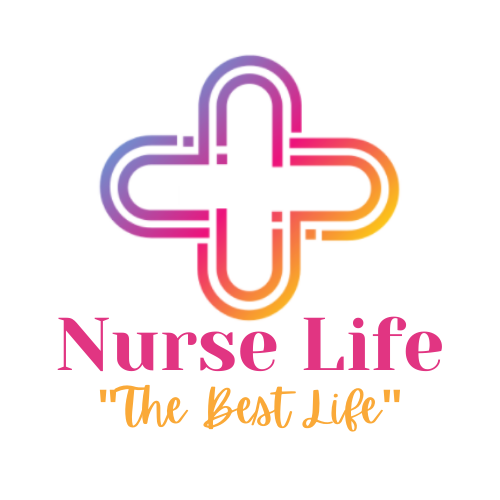
Your graduate nursing journey can be demanding and strenuous, often leaving you feeling overwhelmed and stretched thin. Burnout is a genuine concern that can:
● reduce your work performance, leading to errors in patient care, missed documentation, and lower quality of patient care.
● impair your ability to think critically and make sound decisions.
● reduce your capacity for empathy and compassionate care, which can negatively impact the nurse-patient relationship.
● lead to a lack of enthusiasm for nursing, diminishing your motivation and job satisfaction.
● take an emotional toll and cause strain on relationships at work and home due to increased irritability and emotional exhaustion.
● contribute to mental health issues, like anxiety, depression and a sense of hopelessness, making it challenging to cope with the demands of nursing practice.
● lead to physical health problems such as headaches, insomnia, fatigue, and even a susceptibility to illness.
It’s important that you recognise the signs of burnout early and implement practices to support you and your wellbeing.
Recognising Burnout: The Warning Signs
These signs can be subtle at first, so it’s important to be vigilant.
1. Physical Symptoms: you experience headaches, stomachaches, or other physical discomforts due to stress.
2. Persistent Fatigue: you feel physically and mentally drained, no matter how much rest you get.
3. Emotional Exhaustion: you find it increasingly challenging to manage your emotions, and you might become irritable or detached.
4. Decreased Performance: your clinical performance starts to suffer, despite your best efforts.
5. Detachment: you begin to feel emotionally distant from your patients, colleagues, and even your family and friends.
6. Loss of Motivation: tasks that used to inspire you now feel burdensome and uninteresting.
Once you’ve identified these signs and symptoms, it’s time to take the necessary steps to safeguard your wellbeing and set you up for long-term success in your nursing career. The key? Self-care.
Self-Care Practice 1: Aligning Your Career with Your Values
Before you even start your grad year, it’s easy to get swept up in the external expectations and perceptions of what your nursing career should look like. For instance, if you aspire to work in ED solely because it’s perceived as “sexy” by others, but it doesn’t align with your true passions or values, it’s important to reconsider your path and find a specialty that resonates with your authentic self.
Regardless of the area you work in during your grad year, use the time to consolidate your knowledge and skills.
After your graduate year, you'll have a clearer sense of which specialty truly ignites your passion. Take your time to explore and discover what resonates with you most. Stay true to yourself and let your authentic self shine through.
Self-Care Practice 2: Balancing Identity and Success
During your nursing career, it’s common to be consumed by the pursuit of success. However, it’s essential to ask yourself, “At what cost?” Losing touch with your own identity and wellbeing in the process can lead to burnout. The systems in which we study and work often don’t prioritise our humanity, so as nurses, it’s up to us to advocate for our wellbeing.
Self-Care Practice 3: Sleep and Movement
Never underestimate the power of sleep. It's during these restorative hours that your body heals, your mind rejuvenates, and your emotional resilience recharges.
To prioritise sleep:
● Establish a routine: aim for a consistent sleep schedule. Going to bed and waking up at the same time
each day helps regulate your body's internal clock.
● Create a relaxing bedtime ritual: wind down before bedtime with soothing activities like reading, gentle stretching, or a warm bath.
● Optimise your sleep environment: ensure your sleep space is conducive to rest. Keep it cool, dark, and quiet, and invest in a comfortable mattress and pillows.
● Limit screen time: avoid screens, including smartphones and laptops, at least an hour before bedtime, as the blue light emitted can interfere with your sleep.
● Mind your diet: avoid heavy meals and caffeine close to bedtime. These can disrupt your sleep patterns.
Prioritise movement:
While it might seem counterintuitive to include movement when discussing sleep, physical activity (in addition to pounding the ward floor), is an essential part of wellbeing. Activities like stretching, walking in nature, yoga, or pilates provide not only physical benefits but also valuable insights into what your body needs at any given moment.
Regular movement can:
● Reduce stress: physical activity is a fantastic stress reliever. It helps release endorphins, which improve your mood and reduce stress hormones.
● Improve sleep: engaging in gentle exercise during the day can contribute to better sleep quality at night. However, avoid vigorous workouts too close to bedtime.
● Enhance body awareness: movement practices like yoga or pilates promote mindfulness and body awareness. They teach you to listen to your body's signals and respond to its needs.
Self-Care Practice 4: Embracing Embodiment Practices
Take a moment to connect with your body. Close your eyes, do a quick body scan, and ask yourself, “How am I feeling?” Trust this line of communication between your mind and body. Recognise your needs, whether it’s to rest, move, or release emotions.
How to Navigate Shift Work and Different Work Environments
In your graduate year, the challenges aren’t limited to educational requirements and clinical rotations; they also extend to the realities of shift work and the diversity of work environments you’ll encounter. These aspects of your graduate journey can play a significant role in your overall wellbeing and resilience. Let’s delve into how to navigate them effectively.
Adapting to Shift Work
One of the first major adjustments you’ll face is adapting to shift work. Nursing and healthcare operate around the clock, and you’ll find yourself working day shifts, night shifts, weekends, and holidays. This erratic schedule can take a toll on your physical and mental health if not managed properly.
To thrive in this environment, consider these additional strategies:
● Embrace Transition Time: allow time for your body to adjust when switching between day and night shifts. Gradual transitions and short naps can be helpful.
● Seek Support: connect with colleagues who have experience with shift work. They can offer valuable tips and emotional support.
Navigating Different Work Environments
Your graduate year will expose you to a variety of work settings, from busy emergency departments to specialised units and clinics. Each environment presents unique challenges and opportunities.
Here’s how to adapt smoothly:
● Be Open to Learning: embrace every opportunity to learn and grow. Each work area provides a chance to expand your skills and knowledge.
● Effective Communication: communicate with your team and mentors. Ask questions, seek guidance, and be receptive to feedback. Effective communication is vital in diverse work environments.
● Stay Flexible: flexibility is key when adapting to different work settings. Be ready to adjust your approach and priorities as needed.
Navigating shift work, diverse work environments and the demands of your grad year can be challenging, but with
the right mindset and strategies, and a commitment to self-care, you can ward off burnout and set a strong
foundation for your nursing career. Remember, your wellbeing matters. When you look after yourself, you can make
a positive impact on both your career and the lives you touch as an incredible nurse and human that you are.
Connect with Ana

Hello, I’m Ana Vavrek, the founder of the Huddle Nurse Network. As a dedicated Registered Nurse and passionate Holistic Nurse Wellbeing Coach, my mission is to empower nurses at every stage of their careers. Drawing from my own experience with burnout, I understand the toll it can take.
That’s why I’m here to help nurses not just dodge burnout but also create a sustainable and meaningful self-care and wellbeing plan that serves as the foundation for their personal and professional goals.
I want to see you flourish as a nurse, and still have the energy to crush your goals and enjoy life to the max, all while keeping a healthy balance.
I’d love to invite you to join my Facebook group, The Huddle Nurse Network, a thriving community where you can connect with like-minded nurses and students, share experiences and access valuable insights and support.
And, if you're ready to go all-in on your wellbeing and self-care, my free guide From Stressed to Refreshed: Your Ultimate Self Care Guide is your perfect starting point. This guide is designed to help you craft a personalised self-
care plan that aligns with your wellbeing needs. It’s your ticket to a more refreshed and fulfilled you!
Download it here: https://fierce-trader-1487.ck.page/bf1fc1deb1
Instagram: @ana.vavrek
FB: https://www.facebook.com/groups/thehuddlenursenetwork
Email: coachanavavrek@gmail.com

